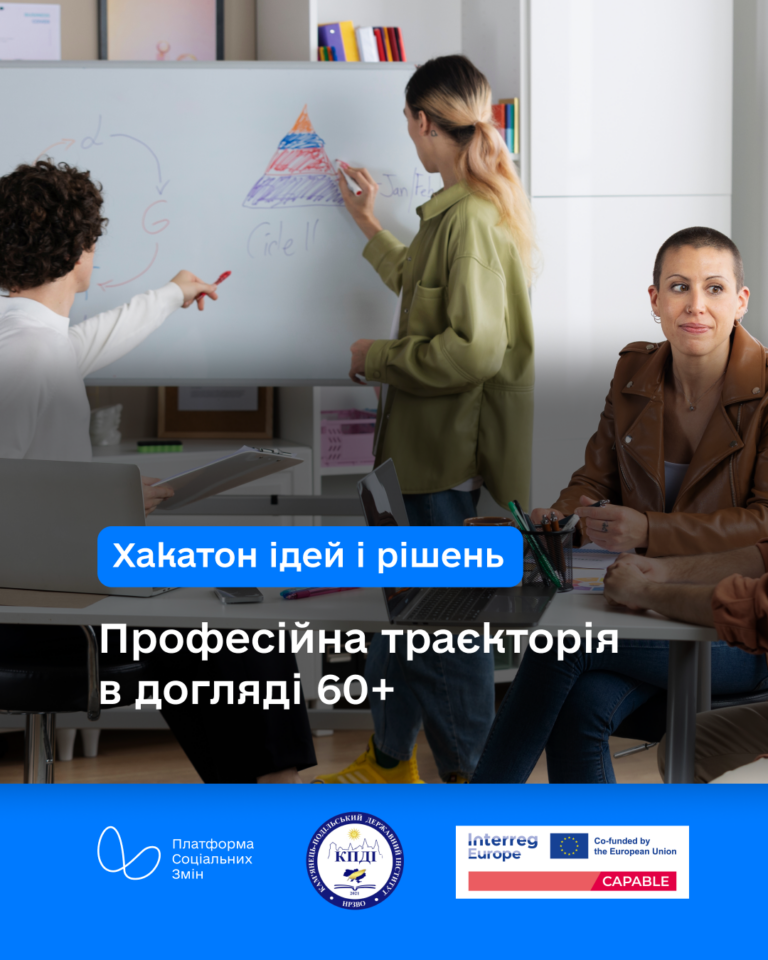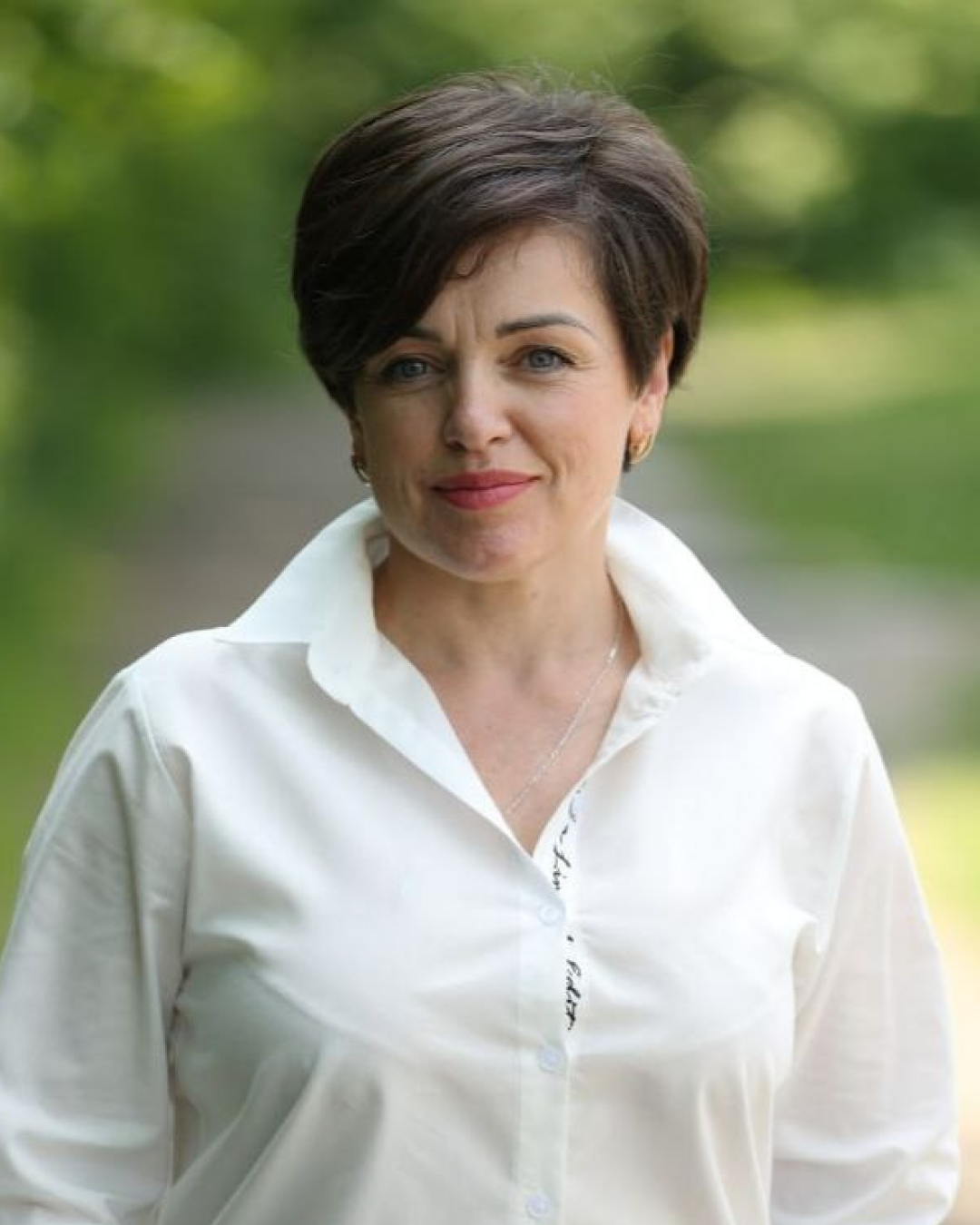Impact Accelerator
Program for entrepreneurs under 35 creating businesses with measurable social impact. We help you build sustainable business models, track impact metrics, and get ready to attract investment.

will gain
From model to market.
Test hypotheses, achieve first sales, and move toward product–market fit.
Impact & finance.
Design your logic of change, measure social impact, and build a working financial model.
Mentoring support.
One-on-one consultations and expert workshops with seasoned practitioners.
Ecosystem access.
Connections to partners, investors, demo days, and pitch events.
Investment readiness.
Prepare a full package of documents for funding, grants, or investment deals.
Idea — concept and core team
Launch — product and first sales
Scaling — market expansion and investment
- What social entrepreneurship is and how it works in Ukraine and globally
- Defining mission, vision, values, and personal motivation
- Systems thinking as a tool for building sustainable solutions
- Strategic planning for long-term impact
- Building a Business Model Canvas for impact ventures
- Theory of Change: structuring your logic of change
- Problem and solution validation: interviews, hypotheses, testing
- Legal forms: sole proprietorship, NGO, cooperative, LLC — what to choose
- Market and competitor analysis
- Customer development and journey mapping
- Pricing for social products and services
- Sales fundamentals: channels, scripts, handling objections
- Simple operational model: from idea to service delivery
- Team roles and management at early stages
- Budgeting, P&L, cash flow fundamentals
- Accounting, taxes, and grant reporting
- Building a marketing strategy with a social-impact focus
- Branding, tone of voice, and visual identity
- Using AI tools: ChatGPT, Canva, content generators
- Social media, email outreach, and media relations
- Paths to scale: vertical, horizontal, franchise, or digital
- Writing grant applications and communicating with donors/investors
- Pitch preparation: structure, evidence, and visuals
- Post-program roadmap: next 6–12 months
Applicants can be founders or co-founders under 35 who have decision-making authority and responsibility for their project’s development. The program welcomes ventures at any stage, from an idea to MVP or an existing product with social impact in sectors like agri-food innovation, HoReCa, ecology, inclusion, and similar areas. A key requirement is readiness to work with the market and metrics: testing hypotheses, tracking results, and adjusting strategies.
Starting as a solo founder is allowed, though preference is given to those who already have a co-founder or a small core team with expertise in marketing, product, operations, or finance. For projects involving partnerships with NGOs, local authorities, or cooperatives, a coordinator from the organization can participate.
Selection is multi-stage: a short video application (up to 90 seconds) with a structured form, a group online session with mini-pitches, and an individual interview (~20 min) to assess motivation, ability to manage risks, and readiness for the program’s pace.
Participation in the program is free for founders, thanks to support from donors and partners. Teams may also have access to microgrants for prototypes or pilot projects, with amounts and conditions determined by partners or donors. Please note that the program does not cover participant logistics or the purchase of long-term assets or equipment. We do not take equity or charge royalties, and introductions to investors do not obligate you to any deals. All intellectual property remains with the founders, and additional agreements with partners are made only when necessary.
The program runs in a hybrid format: about one-third of activities happen online through expert workshops, Q&A sessions, reverse mentoring, and hypothesis testing, while the remaining 70% take place offline via intensive workshops, networking, and the final demo day with pitches.
Weekly workload typically includes 4–6 hours of learning in workshops, 2–4 hours of self-directed work on validation, client interviews, and model updates, and 1–2 hours of 1:1 mentoring or coaching every 1–2 weeks.
Mentors support teams at roughly a 1:4–6 ratio, providing access to templates (business model, theory of change, financial model, go-to-market plan, pitch), guides, and session recordings. Instruction is in Ukrainian, with translation and support available when international experts are involved. Online participation requires a stable internet connection, a camera, microphone, and access to basic online tools (Google Workspace, Slides, Sheets).
Yes. Graduates can join the post-accelerator Lift track, which includes monthly office hours with curators and mentors, 90-day check-ins to review goals and metrics with opportunities to adjust plans, and introductions to investors, partners, and next-level accelerators. Alumni also gain access to the community, a toolkit, case templates, and micro-courses.
To get investor-ready, participants assemble a basic “Founder Kit”, which always includes a 12–15 slide pitch deck covering key blocks—from problem and solution to business model, market, competitors, go-to-market strategy, traction, unit economics, team, financial plan, funding request, and social impact. A one-pager highlighting key facts and a clear call-to-action is also required, along with a financial model showing P&L, cash flow, balance sheet, unit economics, scenario planning, and capital needs. Additionally, a go-to-market plan outlines channels, sales funnel, and CAC/LTV metrics.
For grant applications and impact investors, a separate package is prepared with the theory of change, impact KPIs, monitoring & evaluation plan, and policies on safety, data protection, and inclusion.
Upon investor request, a Data Room can be assembled with legal documents, cap table, contracts, licenses, traction metrics, client testimonials, letters of intent, and a risk & fund utilization plan for 12–18 months. All forms and templates are provided by the Social Change Platform, and workshops offer guidance on how to fill them out correctly.




